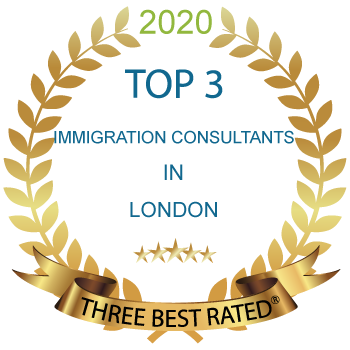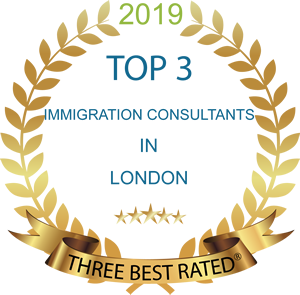Tier 4 (General) Student Visa
The Tier 4 (General) category is for adult students who want to come to or remain in the UK to pursue their post-16 education.
Applicants under the Tier 4 (General) student must have 40 points of the points assessment:--
- 30 points for having a valid confirmation of acceptance for studies (CAS), which is given by the approved education provider; and
- 10 points for cover the course fees and living costs (or the maintenance funds).
Visa Entitlements
Successful applicants will be allowed to stay in the UK for the full length of their course, and for some time (depending on the type and length of their course) after their course finishes.
FAQ
-
What type of course can I study?v
-
Applicants under the Tier 4 (General) student visa can undertake the following full-time courses in the UK:-
- Course of study that leads to a qualification at Level 6 or above of the revised National Qualification Framework (NQF) or its equivalents; or
- An overseas course of degree level study that is recognised as being equivalent to a UK Higher Education course and is being provided by an overseas HEI; or
- Course involving a minimum of 15 hours per week organised daytime study leading to a qualification below degree level but which must be at a minimum of NQF Level 3 or its equivalents; or
- Undertaking a recognised Foundation Programme as a postgraduate doctor or dentist in the UK; or
- Undertaking work as a student union sabbatical officer at the Tier 4 sponsoring institution.
-
-
How long can you stay?v
-
Applicant studying below degree level: -Applicants who are 18 years old or over, can spend no more than three (3) years in the UK studying below UK bachelor's degree level as a Tier 4 (General) student Visa. This three (3) year limit does not include any time that if applicant has spent studying below UK bachelor's degree level under:
- The student rules that were in place before 31 March 2009; or
- Tier 4 (General) when you were 16 or 17 years old; or
- Tier 4 (Child) when you were aged under 18; or
- any other immigration category outside Tier 4 which permits study.
Applicant studying above degree level:- Applicants who are 18 years old or over, can spend no more than five (5) years in the UK studying at or above UK bachelor's degree level as a Tier 4 (General) student visa. This five (5) year limit is in addition to any time spent studying below degree level as a Tier 4 (General) student and any time spent in the Tier 4 (Child) category.
The five (5) year limit does not apply to studying a course at or above degree level in certain subjects:-
- Architecture;
- Medicine;
- Dentistry;
-
Law - if applicant have completed a course at degree level in the UK and are progressing to:
- A law conversion course validated by the Joint Academic Stage Board; or
- The legal practice course; or
- The bar professional training course.
- Veterinary medicine and science; or
- Music at a music college that is a member of Conservatoires UK (CUK).
-
-
Rights of Dependantsv
-
Dependants (including children under 18 years of age or husband, wife, civil partner, unmarried partner or same-sex partner) will be eligible to live and stay in the UK with the main applicant provided the main applicant:-
- Sponsored by a higher education institution on a course at NQF level 7 or above which lasts 12 months or more; or
- A new government-sponsored student following a course which lasts longer than 6 months.
- If your dependants are already in the UK with permission, they will be allowed to extend their stay provided they apply at the same time as you apply to undertake a course of study lasting more than 6 months.
They can live and work in the UK without any restrictions. They will be granted leave in line with the expiry date of the PBS migrant’s (or main applicant’s) leave.
Dependants will have the following conditions attached to their leave:
- No recourse to public funds;
- Registration with the police, if applicable;
- No Employment as a Doctor or Dentist in Training
-
-
Can I work?v
-
Applicants who are following a course at NQF 6 or QCF 6 or SCQF 9 or above with a sponsor which is a Recognised Body or a UK HEI, or they are undertaking a short-term study abroad degree programme at an overseas Recognised Body or HEI the following work is allowed:
- Part-time during term-time, which is no more than 20 hours a week;
- Full-time during vacations;
- On a work placement as part of the course, providing the work placement does not amount to more than 50% of the course;
- As a postgraduate doctor or dentist on a recognised Foundation Programme, providing you are being sponsored by the UK Foundation Programme Office or as a postgraduate dentist if you are being sponsored by the Yorkshire and Humber Strategic Health Authority;
- As a student union sabbatical officer for up to two years.
Applicants who undertake the course at NQF 3/4/5 or QCF 3/4/5 or SCQF 6/7/8, with a sponsor which is a UK HEI, the following work is allowed:
- Part-time during term-time, which is no more than 10 hours a week;
- Full-time during vacations.
-
-
Conditions of Stayv
-
Applicants will have the following conditions attached to their leave:
- No recourse to public funds;
- Registration with the police, if applicable;
-
-
What is my immigration status while my application is pending?v
-
If applicants submit their application before their authorised stay ends, their existing immigration status will continue until their application is decided, even if the decision is not made until after the end of their permitted stay. Applicant can continue to work until their case is decided if the conditions of their existing leave allow them to do so.
-
-
Biometric Requirementv
-
Foreign nationals from outside the European Economic Area making certain applications to the Home Office have to apply for a biometric residence permit. This applies to both postal applications and applications made in person (known as ‘premium applications’). The biometric residence permit is a residence permit which holds a migrant’s biographic details (name, date and place of birth) and biometric information (facial image and fingerprints), and shows their immigration status and entitlements while they remain in the UK. This also means that a UK visa will no longer be stamped in applicant’s passport and all applicants will be issued one of the new Biometric visa cards instead. These cards look very similar to a (pink) UK driving license except they have a microchip on the back.
Applicants who wish to extend their stay in the UK by post, the Home Office will send them a letter asking them to enrol their biometrics after the Home Office have received their application. Applicants will be able to enrol their biometric information one of the Post Offices offering this service across the UK using their walk-in service.
Applicants who are submitting their application in person can do this at one of the Public Enquiry Offices by using the premium service. Applicants will enrol applicants’ biometric information at the same time as making their application.
For application submitted overseas, the applicants have to provide their biometric enrolment at one of the Visa Facilitation Centres. Successful applicants will receive a 30 day ‘vignette sticker’ in their passport instead of a vignette with the full grant of leave. This 30 day visa will be the date they indicated as their intended travel date in their visa application. Applicants will be required to collect their BRP from the Post Office branch detailed in their decision letter within ten days of arrival in the UK. The Post Office branch is linked to the postcode that they submitted in their visa application. The BRP card can then be used as proof of right to work, study and access public services in the UK.
-
-
Immigration Health Surchargev
-
The Immigration Health Surcharge (IHS) was introduced by the Home Office on 6th April 2015. People (non-EEA) coming to the UK for more than six months have to pay this health surcharge as a part of their immigration application towards the National Health Service (healthcare in the UK).
Offshore applicants will have to pay the health surcharge if they are applying for a visa for a period of longer than six months, and onshore applicant will have to pay the health charge for any length of visa.Applicants will have to pay £150 per year as a student or £200 per year for all other visa and immigration applications. Dependants will usually need to pay the same amount as the main applicant. The exact amount they have to pay depends on how much leave they are granted. They can calculate how much they will have to pay before you apply. If the period of grant applied for is less than 6 months, then half of the yearly amount to be paid and if the period of grant applied for is more than 6 months, then whole year amount is to be paid.
Visa application will not be granted if applicants do not pay the healthcare surcharge or application will be delayed if the right amount is not paid.
Following persons are exempted to pay the IHS:
- Applicants applying for a Tier 2 (Intra-company Transfer) visa and their dependants;
- Applicant under 18 who has been taken into care by a local authority;
- Applicants who arenationals of Australia or New Zealand;
- Dependant of a member of the UK’s armed forces;
- Dependant of a member of another country’s forces who is exempt from immigration control; and
- Applicants of a relevant civilian employee employed by North Atlantic Treaty Organisation (NATO) or the Australian Department of Defence in the UK and their dependants.
-
-
Government Feesv
-
Home Office fees for Tier 4 (General) Application Postal Same day Overseas Main Appplicant £475.00 £1,275.00 £348.00 Partner & Child (<18years), applying together £475.00 £1,275.00 £348.00 Partner & Child, applying later £475.00 £1,275.00 £348.00
-
-
Processing Timesv
-
In line with the Home Office service standards for processing UK visa applications, they decide 90 per cent of non-settlement applications within 3 weeks, 98 per cent within 6 weeks and 100 per cent within 12 weeks of the application date.
Applicants apply for the Same Day at one of Public Enquiry Office (PEO) in the UK; the application is normally decided on the same day.
-










